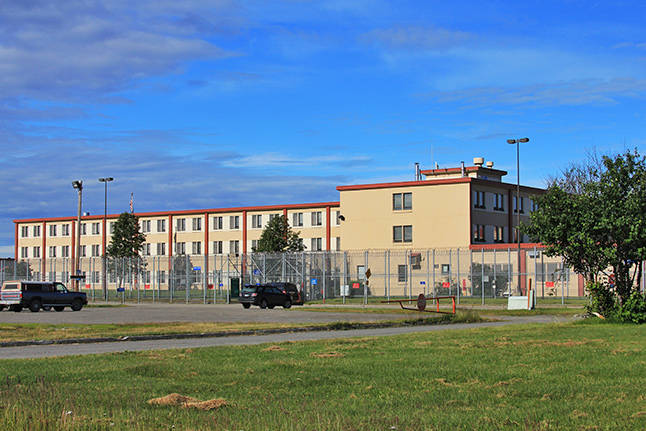Alaska’s Department of Corrections has implemented new protocols in an attempt to avoid a potential coronavirus outbreak in any of the state’s 13 prisons.
DOC announced on Friday, March 13 several measures in response to the new coronavirus, including closing all of its facilities to visitors.
“This was not an easy decision to make,” DOC Commissioner Nancy Dahlstrom said in a March 13 press release. “I recognize how important family contact is to both inmates and their loved ones, so I am looking into other options to be sure communication continues while visiting is suspended.”
DOC Public Information Officer Sarah Gallagher told the Clarion on Tuesday that all inmates would be allowed one free, 15-minute phone call per week. The DOC is looking at allowing additional recreational time for inmates as a way to make up for the lack of visitation, she said.
Other measures the DOC implemented include updating criminal booking screening to include questions related to COVID-19 — the disease caused by the new coronavirus — increasing sanitation frequency — especially in high-use areas — hiring additional inmate workers to clean facilities, providing “additional hygiene products” to inmates free of charge, stocking medical supplies at each facility, placing posters in common areas that stress the importance of hand washing and disease prevention, and waiving medical co-pays for prison-based health services “to ensure individual economic concerns do not limit an inmate’s willingness to seek medical care.”
On March 18, the ACLU of Alaska wrote a letter asking Gov. Mike Dunleavy and Chief Justice Joel Bolger to go a step further, calling on the state to release certain inmates who may be at higher risk of illness.
According to a March 19 press release from the ACLU, the letter calls for commutations for anyone identified by the CDC as “vulnerable” and whose sentence would end in the next two years, anyone whose sentence would end in the next year and anyone currently being held on a technical supervision violation. The letter also calls for law enforcement to stop all arrests for minor offenses, judges to allow teleconferencing for upcoming hearings, prosecutors to avoid cash bail requests and the DOC to make hygiene products, testing and alternative communication freely accessible to inmates.
Gallagher said that the medical supplies that have been restocked include N-95 respirators and surgical masks, non-latex gloves, eye protection, impermeable gowns and cleaning supplies.
“In addition, DOC has increased stock for other medical supplies and medication should access to those supplies be impacted,” Gallagher said.
DOC employees who exhibit symptoms would be required to stay home for at least 72 hours. Anyone showing symptoms while at work would be sent home by their supervisor. Any staff member who has come in contact with a person known to have COVID-19 within two weeks of becoming sick, has traveled in locations that have reported outbreaks or has been on a cruise is not allowed to return to work until cleared by their health care provider, Gallagher said.
Gallagher said that each facility is assigned an MD-level regional medical officer. The two correctional facilities on the Kenai Peninsula — Wildwood and Spring Creek — each have an on-site advanced practice registered nurse or a physician’s assistant. Spring Creek has eight nurses assigned to the facility and Wildwood has seven. The DOC also has relief nurses and traveling nurses who can be called into facilities as needed, Gallagher said.
As of October 2019, Spring Creek housed 500 inmates, while Wildwood Correctional Complex and Pretrial Facility together housed 442, according to data on Alaska prison populations obtained by the Alaska ACLU through a public records request.
Any inmate who exhibits symptoms, Gallagher said, would immediately be given a surgical mask and placed into isolation until cleared by a medical provider. The DOC has testing supplies available for inmates who present symptoms. Staff are advised to contact their health care provider. Inmates who have been tested would be required to stay in isolation until the results come back, and any inmate who tested positive would remain in isolation for the duration of treatment.
In order to keep inmates informed, each housing unit has a TV with cable access that inmates can use to watch the news. Gallagher added that on Wednesday, the DOC’s chief medical officer recorded a PSA for the inmates that gives them “further information about the virus and how they can keep themselves healthy.” The video was sent to all facilities to be aired that day.

